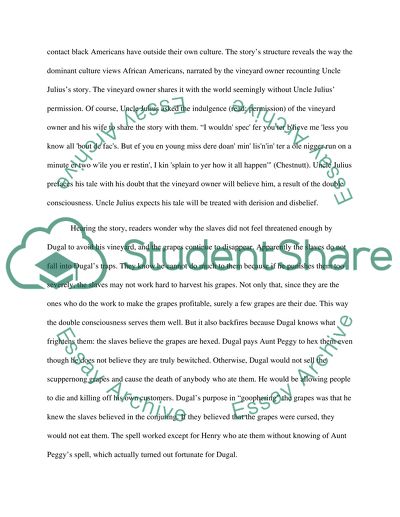Cite this document
(“The Goophered Grapevine. Charles Chestnutt Essay”, n.d.)
Retrieved from https://studentshare.org/english/1432454-the-goophered-grapevine-charles-chestnutt
Retrieved from https://studentshare.org/english/1432454-the-goophered-grapevine-charles-chestnutt
(The Goophered Grapevine. Charles Chestnutt Essay)
https://studentshare.org/english/1432454-the-goophered-grapevine-charles-chestnutt.
https://studentshare.org/english/1432454-the-goophered-grapevine-charles-chestnutt.
“The Goophered Grapevine. Charles Chestnutt Essay”, n.d. https://studentshare.org/english/1432454-the-goophered-grapevine-charles-chestnutt.


